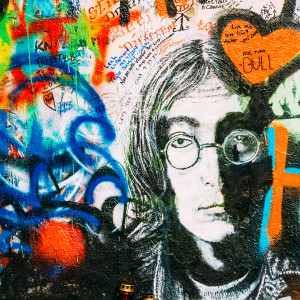Forty years ago, on Dec 8, 1980, during a Monday Night Football game, famed sportscaster Howard Cosell informed America that John Lennon had been murdered by a crazed Beatle fan in Manhattan.
For a certain generation, it was an “I remember where I was when I heard it” moment, like Pearl Harbor and the JFK assassination for generations before them, and 9/11 for those after them.
If he had lived, John Lennon would be 80 today, but like Elvis, JFK or Marilyn Monroe, it is hard to imagine him that old.
Love him or hate him, John Lennon was indisputably the heart and soul of the Beatles, an incredible musical talent with a preternatural understanding of an audience. A complicated individual, he could be charming one minute and unlikeable the next, and his story is one of inspiration and tragedy.
John Lennon was an improbable 20th century icon, coming from a lower middle class Liverpool neighborhood, with an absentee father, and separated from his mother when he was a young boy.
Raised by an aunt in postwar Britain, he dropped out of school to pursue music, and fate brought him together with Paul McCartney, another teenager who happened to be a musical genius.
They became one of the great duos in musical history. With backing from another supremely talented but introverted musician, George Harrison, and Ringo Starr — a capable drummer with the right temperament to mesh with his mates’ egos, which was no small feat — they became The Beatles.
Considering the brief time it took for them to become famous, their immense international popularity was unprecedented.
In 1961, Lennon, fueled by amphetamines, led the band in playing countless long late-night sets in seedy West German nightclubs. Two years later, they were on stage before the Queen of England.
Then, 10 weeks after the Kennedy assassination, they performed on American television to a huge audience, a cultural touchstone forever altering the world’s musical, cultural, and political atmosphere. By the time he was 25, John Lennon was one of the most famous people in the world.
But like another 20th century icon, Muhammed Ali (whom The Beatles once had a humorous encounter with), John Lennon was a controversial character in his heyday.
In 1966, he told a journalist: “Christianity will go. It will vanish and shrink. I needn’t argue about that; I know I’m right and I will be proved right. We’re more popular than Jesus now. I don’t know which will go first — rock & roll or Christianity. Jesus was all right, but his disciples were thick and ordinary. It’s them twisting it that ruins it for me.”
The remarks didn’t fit the band’s image, essentially ending their days of live tours and he soon apologized. In a sense he recanted his apology later when he wrote the lyrics, “Imagine no religion…it’s easy if you can.”
The breakup of the band only seven years after their first hit has been chronicled many times, including his acrimonious feud with McCartney. For some time after that, he seemed particularly unmoored.
Harassed by the Nixon administration for his views on the Vietnam war, he was nearly deported from the United States. Hooked on heroin, he almost destroyed his relationship with his second wife, Yoko Ono.
He quit heroin cold turkey (the title of one of his lesser solo musical efforts), settled in Manhattan and withdrew from the music scene. Throughout the 1970’s, he rarely acknowledged his past as the Beatles’ leader.
Touring with The Beatles, especially after his remarks about Jesus, he understood the potential physical danger of crowds. Ironically, soon after he decided to return to music, it was a man he gave his autograph to that morning who returned and brutally murdered him in front of Yoko.
He never saw his son Sean grow up or reconciled with his older son, Julian. His half-sister Julia told the press that she wished John had never picked up a guitar because his fame took him away from her and his Liverpool family, led to his personal isolation later in life and ultimately his death.
When one of his heroes, Elvis Presley, died at the age of 42, Lennon, only a few years younger was asked to comment. He said, “Elvis died when he went into the army. That’s when they killed him…the rest of it was just a living death.”
He meant that the exuberant young man who transformed the world with his combination of sex and rock and roll, and his fusion of country music and rhythm and blues, disappeared when he was drafted. Upon his return, Elvis became basically just a cash machine for others, doing glitzy stage shows and mediocre movies.
When he said that, Lennon was just three years from his own premature death, and he may have seen something of himself in Elvis.
Like Elvis, he was wealthy, had experienced a level of fame few people ever knew, transformed the world, but was now facing middle age with unresolved internal conflicts. John Lennon chose his words purposely, if not always carefully.
He may have known his reference to Elvis’s “living death” was prophetic — part of the tragic wages of transformative fame.

